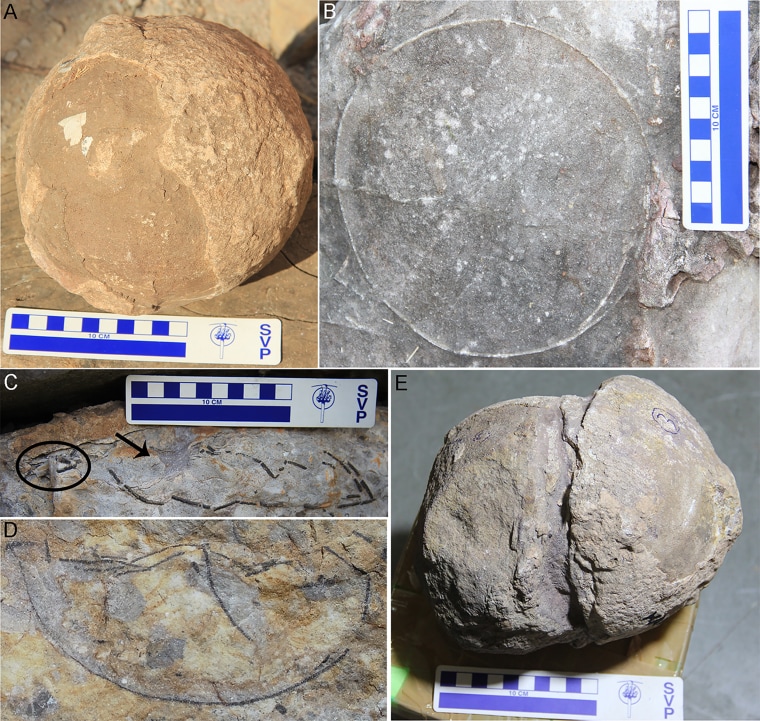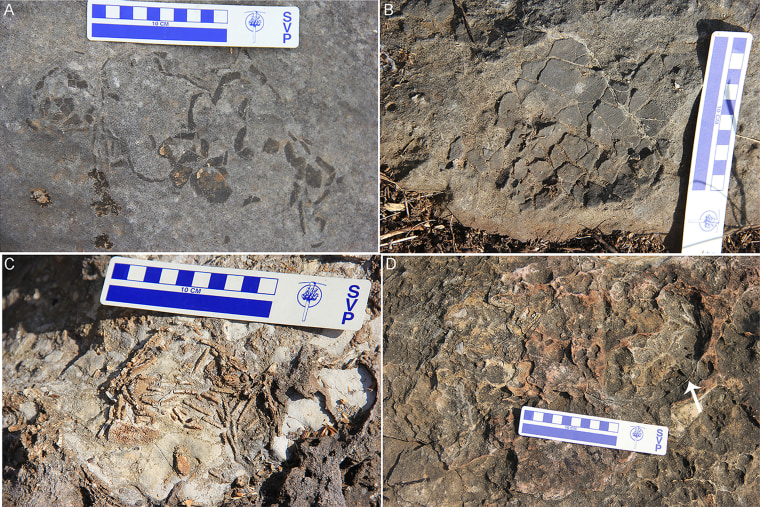 [ad_1]
[ad_1]
Greater than 250 eggs of one of many largest dinosaurs ever to stroll the Earth have been present in 92 hatcheries in central India, in keeping with a staff of paleontologists that made the invention.
The discover reveals intimate particulars in regards to the lives of titanosaurs, which had been about 23 to 85 toes lengthy relying on the species, the researchers from the College of Delhi mentioned in a examine revealed within the PLOS ONE journal final week.
“Our analysis has revealed the presence of an intensive hatchery of titanosaur sauropod dinosaurs within the examine space and gives new insights into the circumstances of nest preservation and reproductive methods of titanosaur sauropod dinosaurs simply earlier than they went extinct,” Harsha Dhiman, the examine’s lead creator, mentioned in a information launch.
Paleontologists have been in a position to establish six various kinds of eggs from the 256 they discovered throughout excavations between 2017 and 2020, the examine mentioned.
This means vital range within the species which lived from the late Jurassic Epoch, round 163.5 million to 145 million years in the past, till the tip of the Cretaceous Interval, roughly 145 million to 66 million years in the past, the examine added.

“Eggs and eggshells are thought-about as hint fossils, and their discovery could be examined as oblique proof of the existence of life,” Guntupalli V.R. Prasad, a co-author of the examine, instructed NBC Information on Friday.
Discovered within the Lameta formation, a sedimentary geological formation in central India recognized for fossil discoveries, Prasad mentioned, the egg species “could signify intraspecific variation,” which may recommend the next range of titanosaurs than these represented by skeletal stays discovered within the area.
Multi-shelled and ovum-in-ovo, or “egg-in-egg” pathologies have been recognized at this web site, indicating “that the creatures had a reproductive physiology just like birds and probably laid their eggs in the same method,” the examine mentioned.

Nevertheless, it added that the clutch sample “which reveals eggs randomly spaced with related matrix content material inside and outdoors the eggs, signifies their nesting sample to be extra just like crocodiles.”
The staff additionally advised that the titanosaurs buried their eggs in shallow pits like crocodiles they usually had been incubated utilizing photo voltaic radiation and geothermal warmth.
“The presence of many nests in the identical space suggests these dinosaurs exhibited colonial nesting conduct like many trendy birds,” the examine added. “However the shut spacing of the nests left little room for grownup dinosaurs, supporting the concept that adults left the hatchlings (newborns) to fend for themselves.”
[ad_2]
Supply hyperlink https://classifiedsmarketing.com/?p=31172&feed_id=115807


